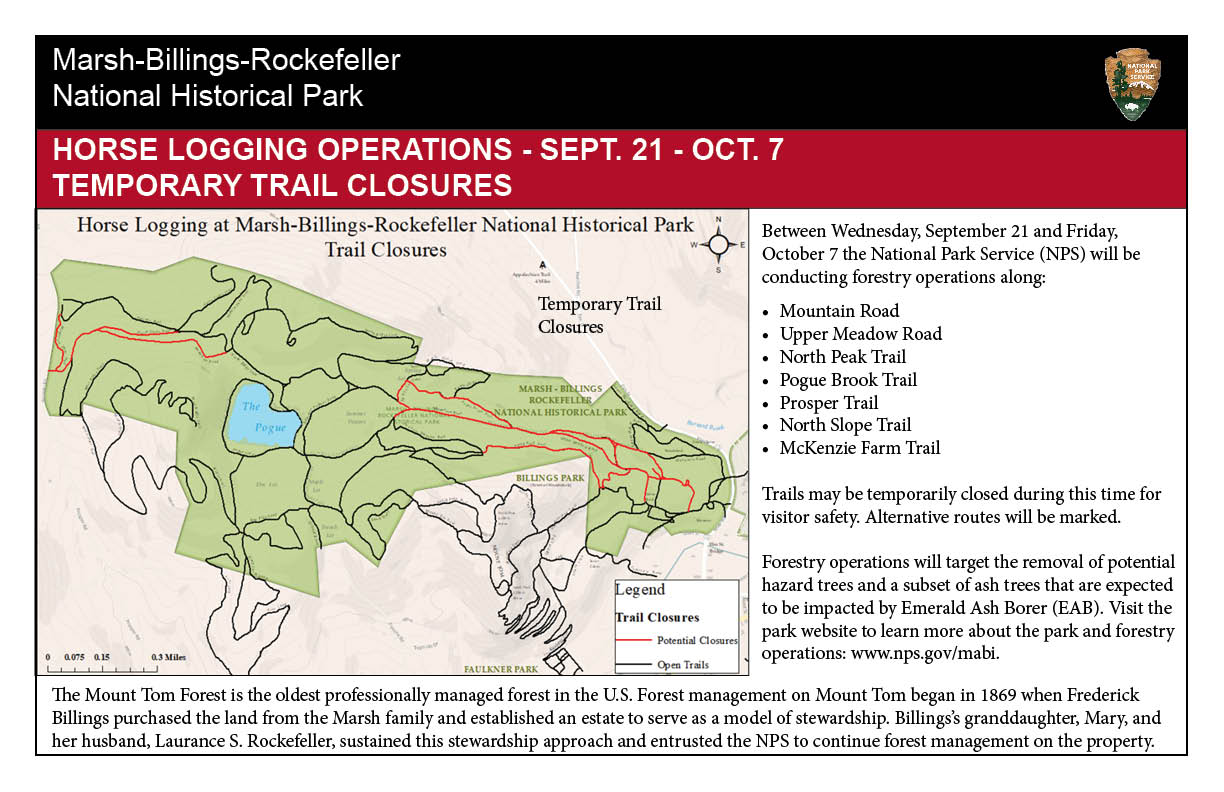News Release
You are viewing ARCHIVED content published online before January 20, 2025.
Please note that this content is NOT UPDATED, and links may not work. For current information,
visit https://www.nps.gov/aboutus/news/index.htm.

|
Subscribe
|
Contact: Rainey McKenna, 802-478-4160
Annual forest management operations are scheduled to begin at Marsh-Billings Rockefeller National Historical Park on September 21 and continue through mid-October. During this time, there will be temporary trail closures in and around the work areas between 7:00 a.m. and 5:00 p.m. Posted signs at trailheads will alert visitors to the closures and alternative routes will be marked. The Prosper Road parking lot will remain open.Felling and removal of the trees will be completed using traditional horse logging techniques by Third Branch Horse Logging of Braintree, VT. Visitors are invited to view the horse logging operation during the park’s Forest Festival event on September 24 from 10:00 a.m. to 4:00 p.m.
The forest management work will target a subset of ash trees that could pose a hazard to visitors due to mortality caused by Emerald Ash Borer (EAB). While EAB has not yet been found in the park, it has been detected in the Upper Valley and is expected to reach the park within 5-10 years. EAB causes wide-spread mortality of ash trees within a few years of infestation.
Using a multi-year phased approach, the park is taking proactive steps to remove ash along the main carriage roads and trails that could become safety hazards to visitors in their eventual mortality. The treatment plan was developed in consultation with Redstart Forestry of Corinth, Vermont in accordance with the park’s forest management plan.
The Mount Tom forest is the oldest professionally managed forest in the United States. Forest management on Mount Tom began in 1869 when Frederick Billings purchased the land from the Marsh family and established an estate that would serve as a model of wise stewardship. Billings’s granddaughter, Mary, and her husband, Laurance S. Rockefeller, sustained this stewardship approach and entrusted the National Park Service to continue forest management on the property.
To learn more about EAB and its impacts Vermont’s forests, visit Emerald Ash Borer in Vermont | Vermont Invasives (vtinvasives.org).
Last updated: September 15, 2022
